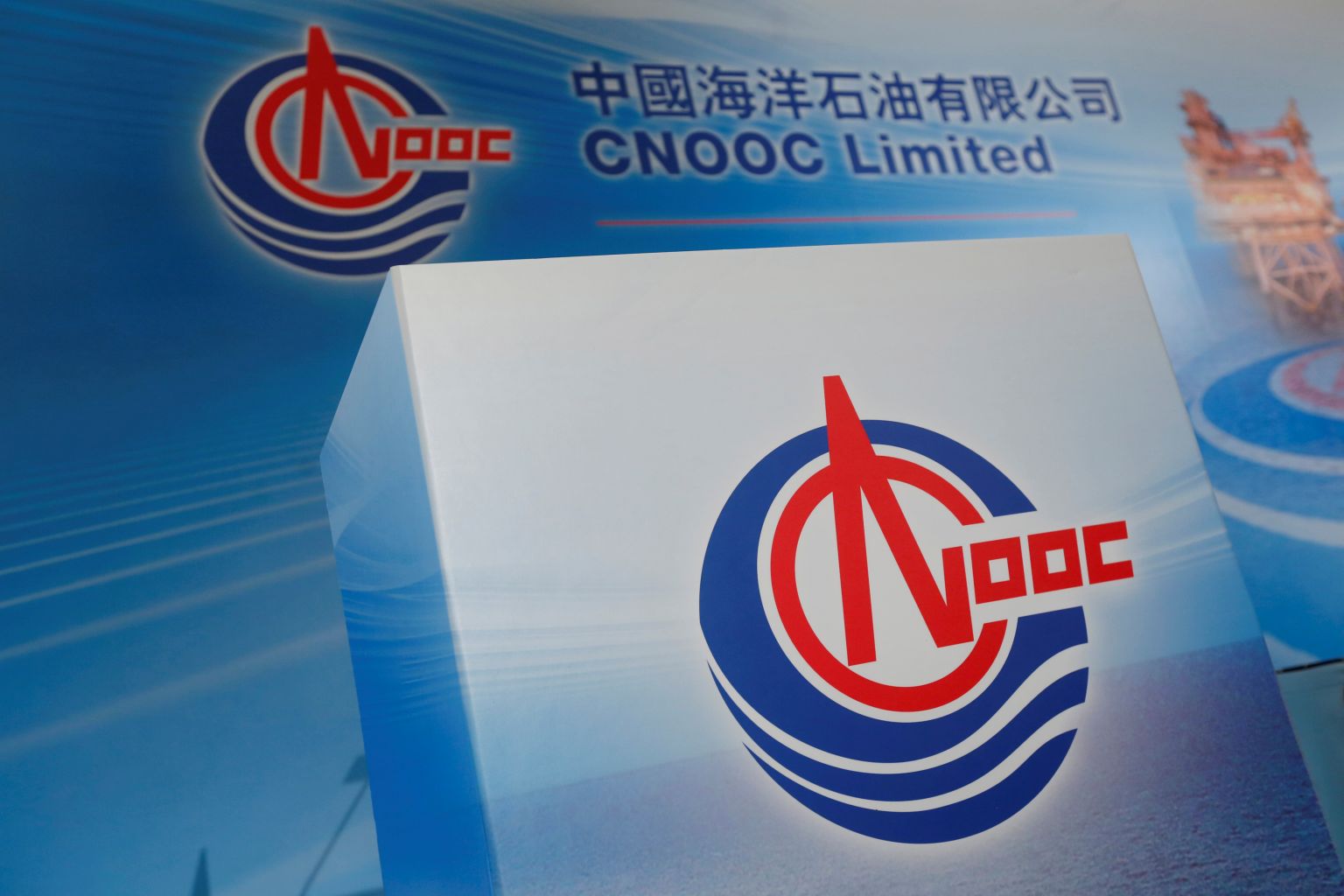Trump administration takes final swipes at China and its companies
Sign up now: Get ST's newsletters delivered to your inbox

The Commerce Department added CNOOC to its blacklist over what it called “belligerent” actions.
PHOTO: REUTERS
Follow topic:
WASHINGTON (REUTERS, AFP) - The Trump administration in its waning days took another swipe at China and its biggest firms on Thursday (Jan 14), imposing sanctions on officials and companies for alleged misdeeds in the South China Sea and imposing an investment ban on nine more firms.
The moves will further increase tensions with China, Washington's strategic rival in Asia, days before President-elect Joe Biden takes office on Wednesday. The Biden transition team did not immediately respond to a request for comment.
Executives of state-owned enterprises, officials of the Chinese Communist Party and military, along with oil giant CNOOC will face new restrictions for allegedly using coercion against states with rival South China Sea claims.
Senior US officials told reporters on a call on Thursday the new CNOOC restrictions will not apply to crude, refined fuels and liquid natural gas and do not apply to existing joint ventures with CNOOC that do not operate in the South China Sea.
Nine Chinese firms were added to the Pentagon's list of companies with alleged ties to the Chinese military, including planemaker Comac and phone maker Xiaomi.
Those companies will be subject to a new US investment ban which forces American investors to divest holdings of the blacklisted firms by Nov 11, 2021.
Shares in Xiaomi slumped over 11 per cent in Friday trading, against a 0.2 per cent drop in the Hang Seng index, while CNOOC shares rose around 1 per cent.
In a statement to The Straits Times on Friday, Xiaomi said the company has been in compliance with law and operating according to the relevant laws and regulations of jurisdictions where it conducts its businesses.
"The company reiterates that it provides products and services for civilian and commercial use. The company confirms that it is not owned, controlled or affiliated with the Chinese military, and is not a 'Communist Chinese Military Company' defined under the NDAA," Xiaomi said, referring to the US National Defence Authorisation Act.
"The company will take appropriate course of actions to protect the interests of the company and its shareholders."
Xiaomi added that it is reviewing the potential consequences of the move by the US to develop a fuller understanding of its impact on the company. It will make further announcements as and when appropriate, it added.
China says US exploiting state power
In its response, the Chinese embassy referred to Jan 7 Foreign Ministry comments accusing Washington of "pinning political and ideological labels on economic and trade issues and exploiting its state power to crack down on foreign companies, under the pretext of national security."
The United States has long opposed China's extensive territorial claims in the South China Sea, a potentially resource-rich area that is also a strategic trade route.
Washington accuses Beijing of intimidating states such as Vietnam and the Philippines that have competing claims there.
China accuses Washington of trying to destabilise the region by sending warships and planes to the South China Sea.
"The United States stands with Southeast Asian claimant states seeking to defend their sovereign rights and interests, consistent with international law," Secretary of State Mike Pompeo said in announcing the sanctions.
Pompeo said Washington was imposing visa restrictions on executives of Chinese state-owned enterprises and officials of the Chinese Communist Party and navy.
He said the sanctions were directed against those "responsible for, or complicit in, either the large-scale reclamation, construction, or militarization of disputed outposts in the South China Sea, or use of coercion against Southeast Asian claimants to inhibit their access to offshore resources." The restrictions could also apply to immediate family members, he said.
CNOOC 'intimidates China's neighbours'
The Commerce Department accused CNOOC of harassing and threatening offshore oil and gas exploration and extraction in the South China Sea, "with the goal of driving up the political risk for interested foreign partners, including Vietnam."
President Donald Trump's administration has kept up pressure in its final days, targeting what Washington sees as Beijing's bid to use corporations as a means to harness civilian technologies for military purposes.
Commerce Secretary Wilbur Ross said CNOOC acted as "a bully for the People's Liberation Army to intimidate China's neighbours" and the Chinese military "continues to benefit from government civil-military fusion policies for malign purposes."
Ross's department added CNOOC to an "Entity List" that requires firms to be granted a special license before they can receive exports of high-tech items from US suppliers.
Chinese aviation firm Skyrizon was added to a Military End-User (MEU) List over its ability to develop military products including aircraft engines, restricting its access to US exports.
Aside from Comac and Xiaomi, the Pentagon added Advanced Micro-Fabrication Equipment Inc, Luokung Technology Corp, Beijing Zhongguancun Development Investment Centre, Gowin Semiconductor Corp, Grand China Air Co Ltd, Global Tone Communication Technology Co Ltd and China National Aviation Holding Co Ltd to the list.
Analysts said the selloff in Xiaomi shares is likely short-term.
"The market reaction is quite intuitive, given US investors have to liquidate their position," said Kevin Chen, vice-president at China Merchant Securities.
"But I would think this volatility is probably more near-term, because fundamentally right now there is very little change to Xiaomi's operation," he said.
Representatives of the Chinese firms did not immediately respond to requests for comment.
On Wednesday, the Trump administration scrapped plans to blacklist Chinese tech giants Alibaba, Tencent and Baidu, four people familiar with the matter said.

